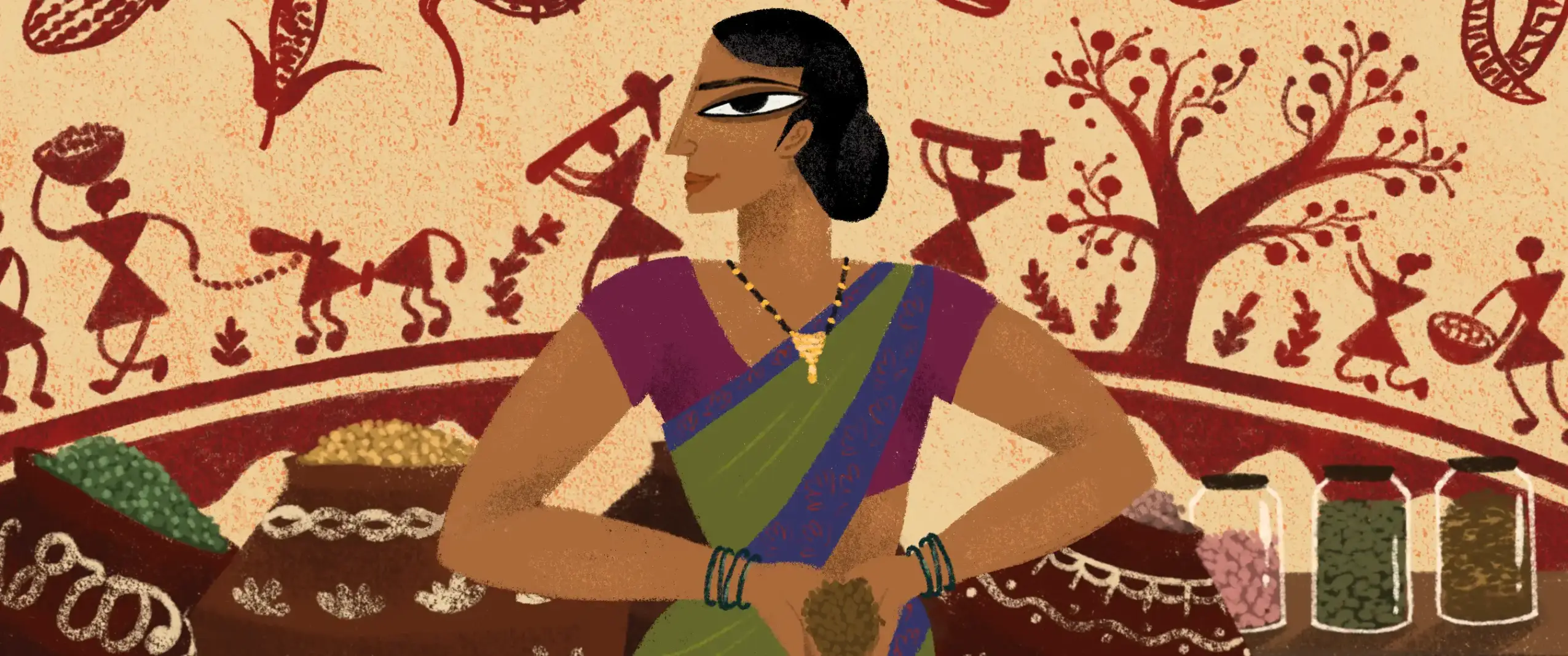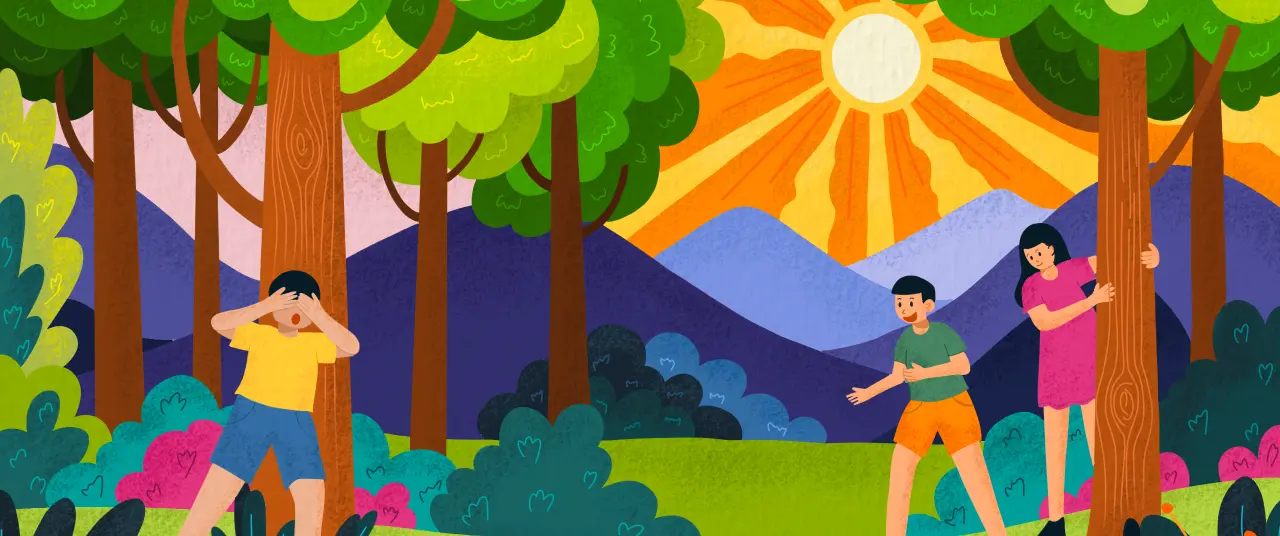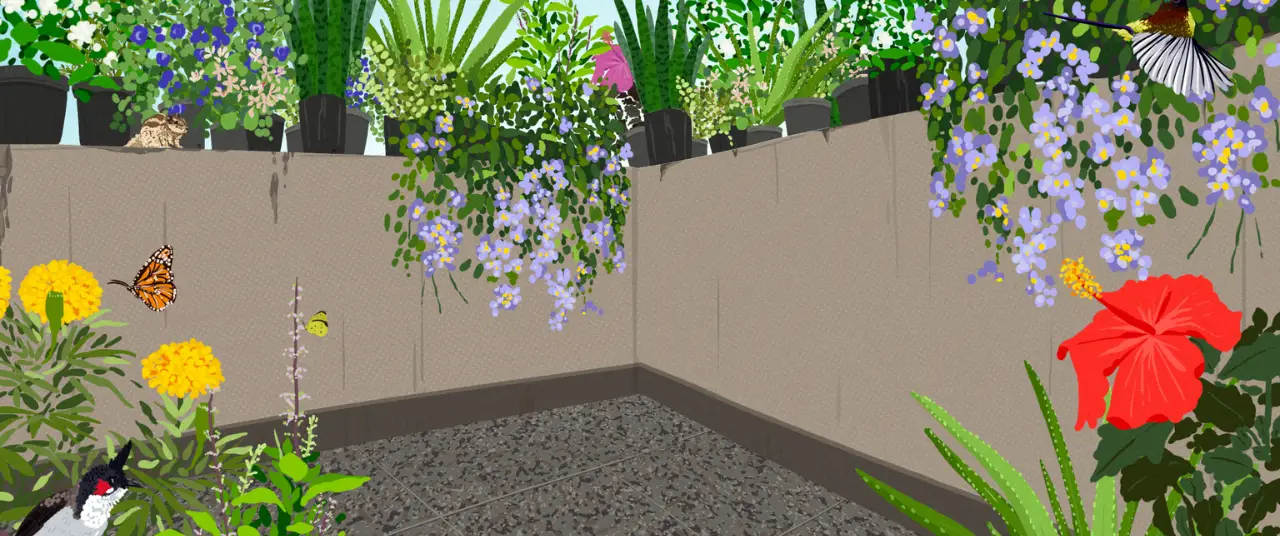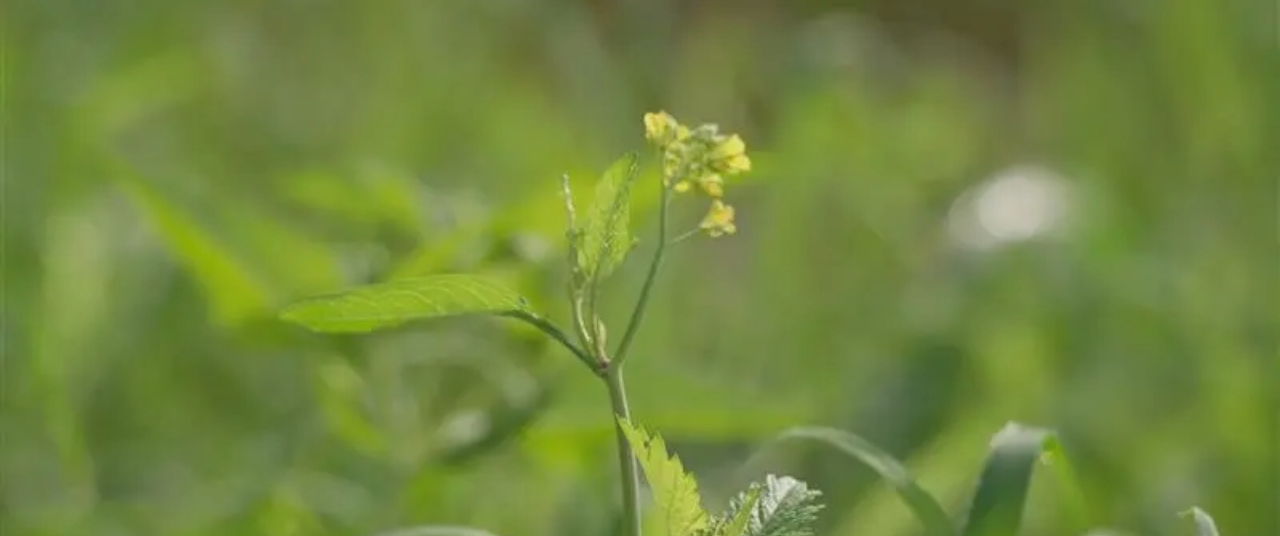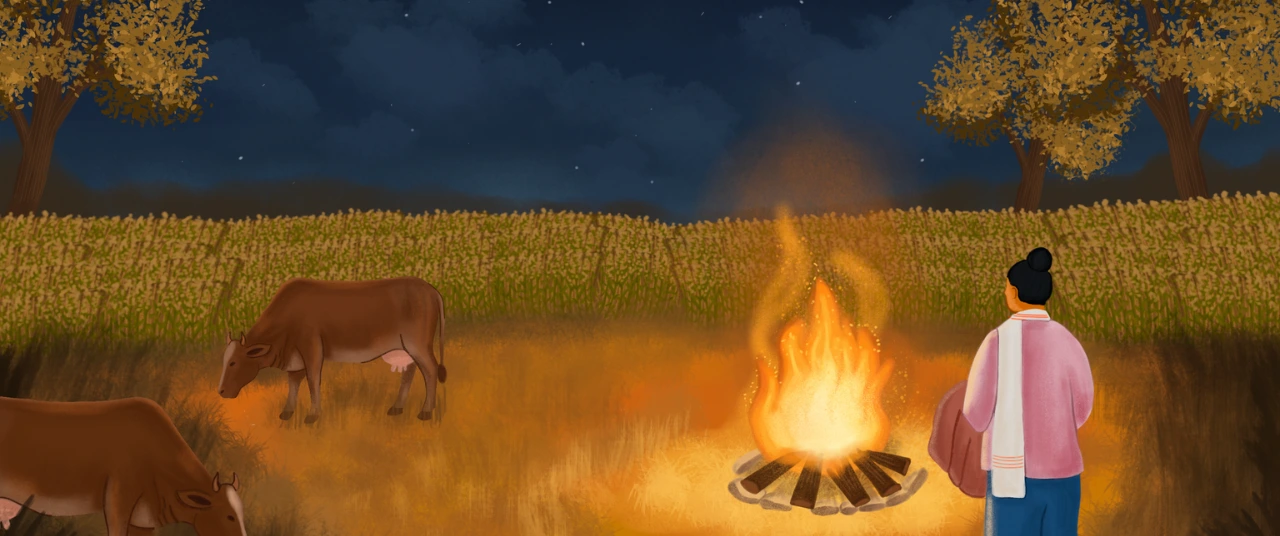The story of Shivakumar CR who traded blueprints for coffee beans






In the Coorg circles, Shivakumar CR is a leading name when it comes to organic farming. While his background is in civil engineering, his true calling is agriculture. He practises “forest farming,” aiming to protect the local environment. He avoids chemicals and ensures his farming doesn’t disrupt the natural cycles of the forest.
Shivakumar carefully selects planting locations based on the water needs of different crops and plants trees on slopes to prevent soil erosion. His farm doesn’t use irrigation systems; instead, he relies on natural rainfall and diverse planting. His crops include coffee, pepper, seasonal fruits, and even exotic varieties like the monster deliciosa.
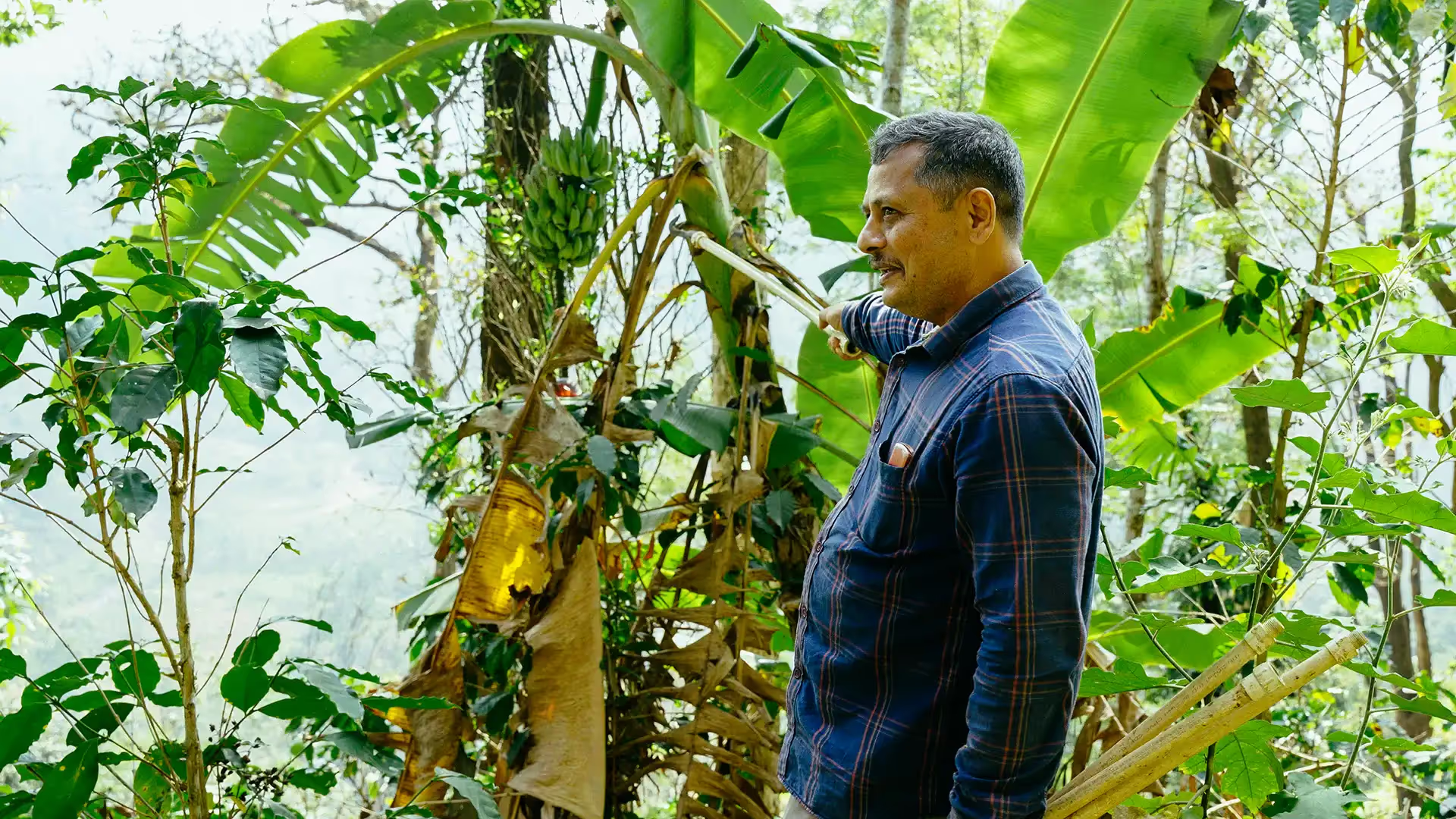
Shivakumar is also passionate about exploring new plants for his farm. He also works to document and preserve traditional knowledge about wild fruits, bridging the gap between historical practices and modern farming.
All about farming
Q: When did your passion for agriculture start?
I come from a family of agriculturists. Since childhood, agriculture has been my passion.
As a civil engineer, I felt like a fish out of water.
I bought this land near Madikeri with my uncle to focus on farming, and I also have more land in Mysore district where I grow horticultural products.
Q: Can you explain what you're trying to do on your farm? You mentioned it's not dependent on irrigation. Could you also talk about your ecological approach?
Here, we rely purely on nature, avoiding mechanisation in our farming process. The small amount of earthwork we’ve done was handled by our labourers. We depend on natural rain for blossoms and backup showers—there’s no irrigation system, even though we have a river below the estate. We haven’t tapped into that resource.
We harvest whatever the season allows, focusing on a mix of crops. I've planned it so that every three months, there's something to harvest to keep things running.
Our main crops are coffee and pepper, with areca coming in around October. We also harvest oranges in June and December, though the plants are struggling due to disease.

For border crops, we grow bananas, but wild boars and porcupines damage them. We also harvest Garcinia gummi-gutta in July and August, along with cardamom during the same time. From December to February, we’re mainly busy with coffee and pepper.
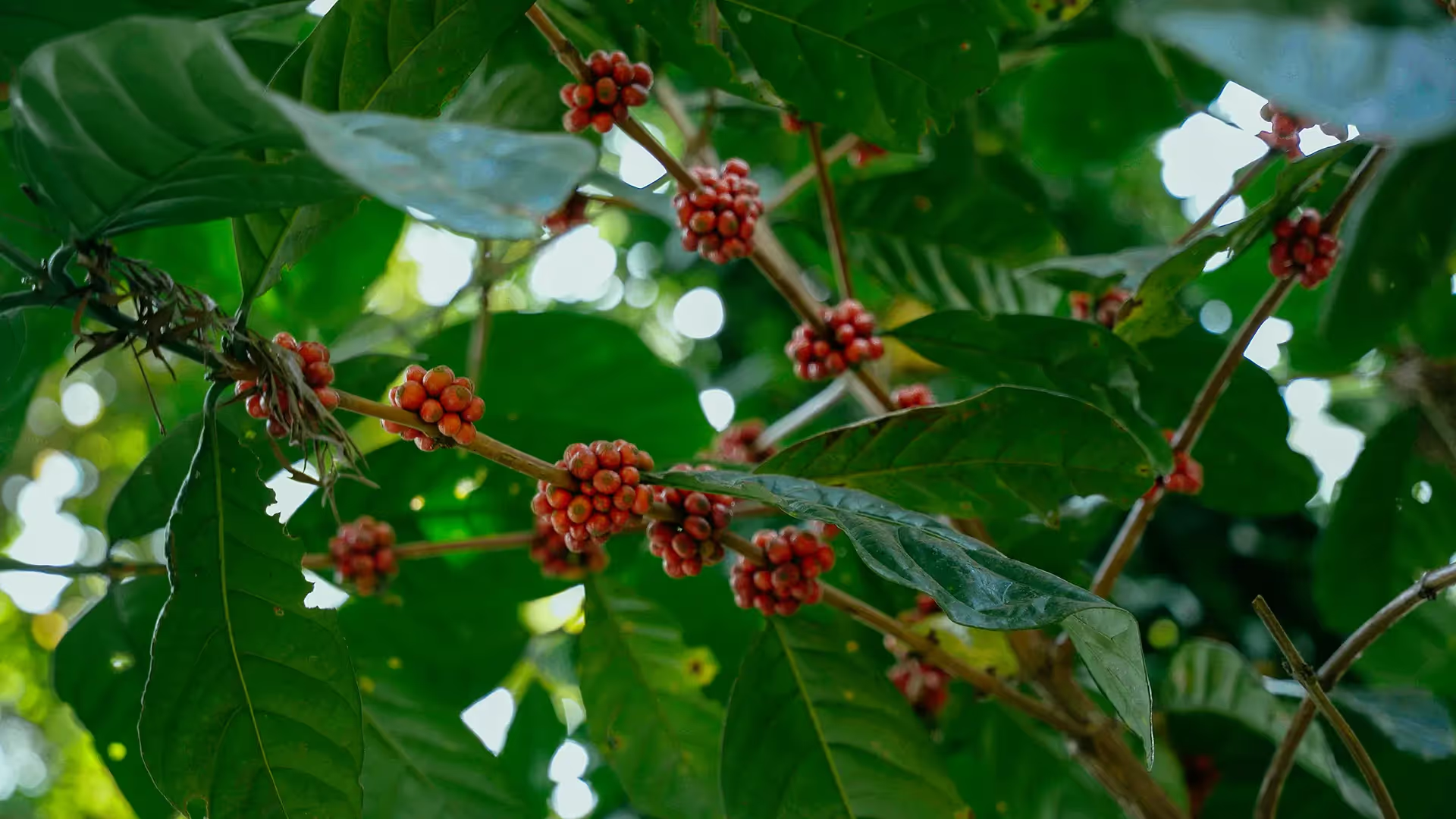
We have coffee almost year-round, plus fruits like sapota and underground crops like ginger and turmeric, which also help support the farm.
Q: You come from a farming background. What led you to adopt organic methods? Was organic farming always practised in your family?
When I was a child, chemical farming wasn’t common. Although some chemicals were used, it was minimal.
Over time, chemicals became more widespread, and farming shifted to a commercial mindset. In the past, people grew crops mainly for food, with coffee as a side crop. Now, food crops are no longer grown, and the focus is on commercial crops. You need manure and water to boost plant growth by 2x, 3x, or even 4x. This often leads to diseases, which then require pesticides.
Meanwhile, production costs keep rising, but market prices for crops aren't increasing at the same rate as expenses. So, farmers end up turning to coffee.
My coffee crop isn’t doing well because we grow it in the shade without using chemical fertilisers. Many farmers are switching to open-sun cultivation, and that has an impact.
Someone who knows coffee can easily tell the difference between sun-grown and shade-grown coffee, as the flavour is noticeably different.
Q: You've lived in Coorg for a long time. How have you seen things change in terms of flora, fauna, and farming practices?
Chemical farming has drastically changed things. In the past, coffee plantations were like forests, with a variety of plants, just like mine. Now, most high-yield coffee farms are fully open, with trees cut down and only stems left.
Earlier, farmers watered the plants only for blossom flowering, but now, due to rising temperatures and sun exposure, they have to water regularly to keep the plants alive. Water levels are also dropping.
On my farm, you can hear lots of birds and see butterflies. But on open farms, you won't find birds. Birds eat harmful pests, and without them, the pest population grows. This forces farmers to use pesticides.

Chemical farming affects not just humans, but the entire environment, and not just locally. In high rainfall areas like ours, pesticides get washed into water bodies, harming aquatic life.
Bird populations are also declining, and wild animals are affected too. They often come to our organic fields.
For example, about 5-6 years ago, the Banana Skipper pest was affecting plantations. This pest is a moth larva that lays eggs on banana leaves. Many experts suggested chemical treatments, and a neighbouring farmer tried them without success. On my organic farm, birds came, tore open the banana leaves, and ate the larvae, controlling the pest naturally. So, my crop wasn’t damaged, even though bananas are just a border crop for me.
Q: Do you think mono cropping and unnatural practices compounded the problem?
It is a complex issue. I feel the heavy machinery moving on slopes and the use of JCBs to remove earth for tourism purposes have played a role in landslides, like the one that happened in Kodagu.
Research and teachings
Q: You’ve been researching wild fruits for a while. Can you tell us how you got started and what varieties you’ve found?
A: I grew up eating wild fruits. When I was a child, Madikeri was almost like a forest, and we would roam around, eating wild fruits.
About 8-10 years ago, I noticed a tree full of wild fruit called Amehanu near a rickshaw stand in Madikeri. No one was eating it because they didn’t know it was edible. That’s when I realised we needed to preserve this knowledge, so I started documenting wild fruits.
So far, I’ve documented about 80 major wild fruits. One interesting one is Elaeagnus conferta, locally known as jerguli. I was especially interested in this fruit, and when I asked around, a caretaker on my farm said it used to grow here, and they ate it as children, but now it's gone.
I eventually found the plant in Madikeri. It turns out the same plant was on my farm all along, but we didn’t recognise it. This shows how much our knowledge of plants has eroded. That’s why I started documenting not just wild fruits, but all wild edibles and the indigenous knowledge around them.
Q: Dr Sujatha mentioned that you're also passionate about teaching and sharing this knowledge. How important is it to pass this on to future generations, and what has your experience been?
A: Our forefathers lived close to nature or worked in agriculture. The next generation moved to cities for jobs, and now, the third generation wants to return to the land. But when they come back, the natural knowledge that was passed down through generations has been lost.
The younger generation learns through courses or the internet, but it’s like eating with a spoon—you don’t feel the heat until the food reaches your mouth. They might study online or from books, but real learning happens when they face problems in the field.
There’s a gap that needs to be bridged through hands-on teaching. Book knowledge doesn’t always apply. Every 5-10 kilometres, the species, land, soil, wind, and slope can change. The coffee on my farm is different from the coffee just three kilometres away. You won’t get the same results everywhere.
Q: On one hand, there’s widespread chemical farming, but there also seems to be a growing interest in change. What do you think the future holds?
A: If consumers are willing to support farmers with vitamin M (money), farmers can do a lot of good. People don’t bargain when buying expensive items like shoes or vehicles, but when it comes to food, they want to pay just 5-10 rupees on a kilo of rice. That doesn’t make sense.
Farmers need to be fairly compensated for quality food. Only then will the system thrive.
(Image Credits: Sreejith M, Nevin T, Harshith V)
Explore other topics
References







